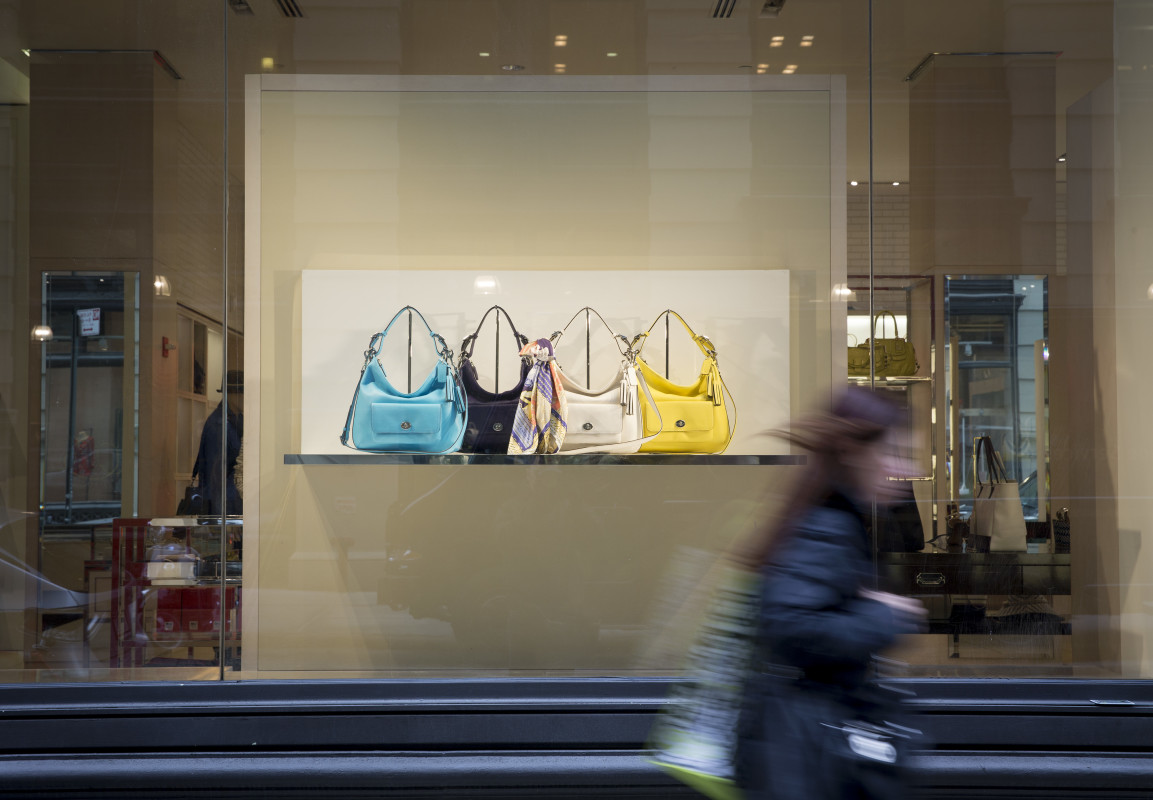
The luxury sector, which used to be one of the strongest fashion sectors worldwide, has been experiencing incredibly sharp declines, leading to some incredibly stormy days.
These struggling companies face an uncertain future amid plummeting sales, which are attributed to a softening in customer spending due to inflation and a shaky global economy. This is especially true with Chinese consumers, who have been luxury's star clients for years but are now responsible for much of the industry's pullback.
Related: LVMH Dior makes bold move on competitor's CEO
Even top fashion houses like LVMH and Kering are suffering the consequences of this luxury slump through lower earnings that have forced them to slash outlooks and devise new strategies in hopes of returning to positive numbers.

The U.S. might steal Europe's throne in luxury fashion
Since the inception of the luxury fashion industry, Europe has held the number-one spot in the space, but its position may soon be threatened.
In August 2023, Tapestry Inc. (TPR) announced it planned to acquire Capri Holdings (CPRI) in an $8.5 billion deal to merge both luxury fashion houses.
These two U.S. companies possess some of the most popular luxury fashion brands in the industry, with Tapestry owning renowned brands, like Coach, Kate Spade, and Stuart Weitzman, and Capri with ownership of esteemed brands including Versace, Jimmy Choo, and Michael Kors.
Related: Nordstrom reveals secret weapon against declining luxury
If the deal goes through, this massive merger would create one of the largest luxury fashion houses in the world, effectively putting the U.S. at the forefront of the luxury fashion world, a spot Europe has held for years.
The FTC argues the deal raises antitrust concerns in the luxury market
The Federal Trade Commission (FTC), whose mandate is to promote fair competition to protect and educate consumers, filed to block the merger for antitrust concerns last month.
By a 5-0 vote, the FTC successfully passed the complaint against both companies to seek a temporary halt on the merger in favor of the public interest, stating that the law would be violated if the deal were to go through.
The FTC argues that the deal between two leading U.S. fashion houses would eliminate brand competition and effectively abolish the accessible or affordable luxury handbag market.
Additionally, the merger would negatively affect the companies' workforce by removing competition for employees, which would reduce wages and workplace benefits.
“This deal threatens to deprive consumers of the competition for affordable handbags, while hourly workers stand to lose the benefits of higher wages and more favorable workplace conditions,” stated the FTC in the filing.
Japan and the European Union have already approved the deal.
Other luxury fashion houses whose mergers went under the radar
Although a big merger, other luxury giants and brands have made similar deals to acquire their competitors, yet these deals went through swiftly.
In 1999, the French luxury group Kering (PPRUF) bought the Italian brand Gucci, the same year that the Italian fashion house Prada (PRDSF) acquired the German brand Jil Sander.
Another big merger happened in 2018 when the optical lens manufacturer Essilor (ESLOF) closed a $49 billion deal to buy the eyewear brand Luxottica, and U.S. brand Michael Kors purchased the Italian brand Versace for $2.1 billion that same year.
The most recent was in 2020 when the French luxury fashion house LVMH struck a $16.2 billion deal to acquire the American fine jewelry company Tiffany & Co. (TIF) .
More Retail:
- Popular beer company enters the sober market
- Temu threatened by hacker claiming data breach that company denies
- Coca-Cola partners with liquor brand to create historical canned cocktail
With all these past mergers going through without opposition, Tapestry and Capri argue that the FTC's arguments "make no sense in this industry."
The fashion houses state that the commission doesn't clearly define the "accessible luxury handbag" market and has an unrealistic view of the handbag industry.
Tapestry also denies any claims of anti-competitive behavior because the luxury fashion house has no intention of merging the brands themselves, sharing pricing information, or limiting innovation.
According to Tapestry, the company seeks to acquire Capri so that it can achieve the procompetitive goal of reinvigorating consumer perception of Michael Kors, increasing demand, expanding sales, and delivering the brand (and Capri's other brands) to more consumers.
The case's closing statements are scheduled for Sept. 30, and the final decision will be made in the next couple of months.
Related: Veteran fund manager sees world of pain coming for stocks







